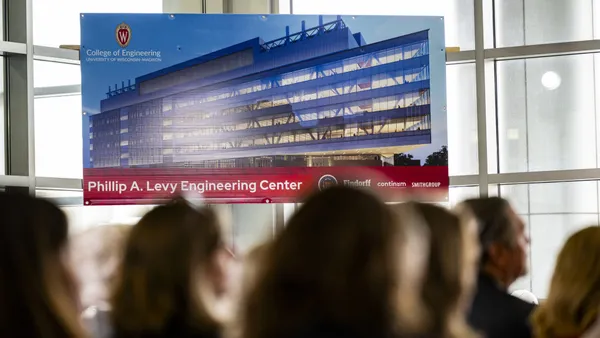Dive Brief:
- Google is building two new data centers in Columbus and Lancaster, Ohio, according to a company press release shared with Construction Dive.
- Construction has already begun at both sites. Once completed, these data centers will help power Google’s artificial intelligence innovation, particularly tools like Gmail, Search and Maps, according to the release.
- The two new facilities are in addition to Google’s other data center in the Buckeye State: a $600 million facility in New Albany, Ohio. The three sites will play a significant role in the growth of Ohio’s technology hub and data center market, Ohio Gov. Mike DeWine said in the release.
Dive Insight:
The planned data centers in Columbus and Lancaster bring the tech conglomerate’s total investment in Ohio to more than $2 billion, according to Google.
Google broke ground in November 2019 on its New Albany data center, which is now complete. The tech company selected New Albany due to its energy infrastructure, developable land and available workforce for the data center, according to Google.
Two years later, Google purchased the land in Lancaster and Columbus for future growth. Last year, the Columbus Google Cloud region launched, helping customers expand globally and those based outside the region more easily reach their users in the Midwest.
The company has not released the names of the general contractors on any of the Ohio projects.
An emerging market
Major data center operators and hyperscalers like Google continue to show interest in Columbus, as well as nearby cities such as New Albany, Hilliard, Dublin and Delaware, Ohio, according to a recent report from Dallas-based real estate services firm CBRE on data center markets.
That’s because the region offers ample land and water supply, low natural disaster risk and aggressive tax incentives.
From a geographic perspective, Columbus is centrally located in the middle of already developed data center markets such as Northern Virginia, Chicago and Atlanta. Meanwhile, over 50% of the U.S. population lives within 750 miles of Columbus, a key advantage for clients wanting to cater to end users, according to CBRE.















